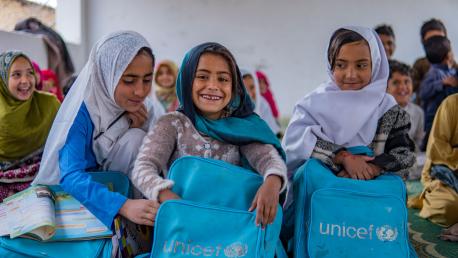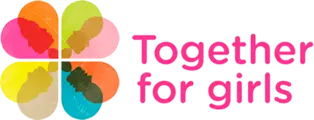
Together for Girls

Sexual violence against children, particularly girls, is universally condemned but occurs much more frequently than people realize. It is a global human rights violation of vast proportions with severe immediate and long term health and social consequences. It can take the form of harassment, touching, incest, rape or exploitation in prostitution or pornography. It happens in the home, schools, care and justice institutions and the workplace. It occurs everywhere, in developed and developing countries as well as in emergency settings. Sexual violence greatly impacts the life path of those who experience it.
What we do
In partnership with national governments, civil society, and the private sector—including UNICEF USA—Together for Girls brings attention to the issue by supporting country driven efforts for change. Together for Girls' partners build on existing programs and platforms where possible, to integrate the issue of sexual violence prevention and support services into social welfare, health, education, and justice programs. Efforts focus on three pillars:
- Support for national surveys and data to document the magnitude and impact of sexual violence, particularly focused on girls, to inform government leaders, civil society and donors.
- Coordinated, evidence-based action in countries to address issues identified through the surveys, including legal and policy reform, prevention and improved services for children who have experienced sexual violence.
- Global advocacy and public awareness efforts to draw attention to the problem and promote evidence-based solutions.
Where we work
Together for Girls' partners are currently providing support in Swaziland, Tanzania, Kenya, Zimbabwe, Malawi, Haiti, the Philippines, Indonesia and Cambodia.
Who we are
We are private sector organizations, multilateral organizations and governments. Learn more at www.togetherforgirls.org.